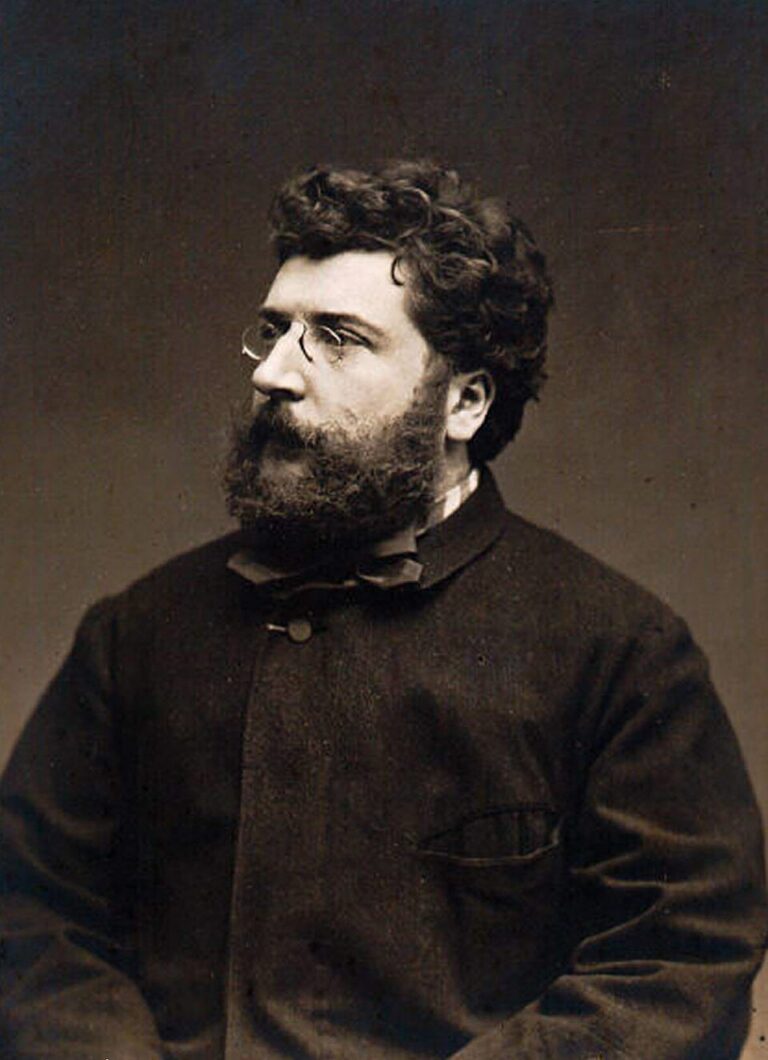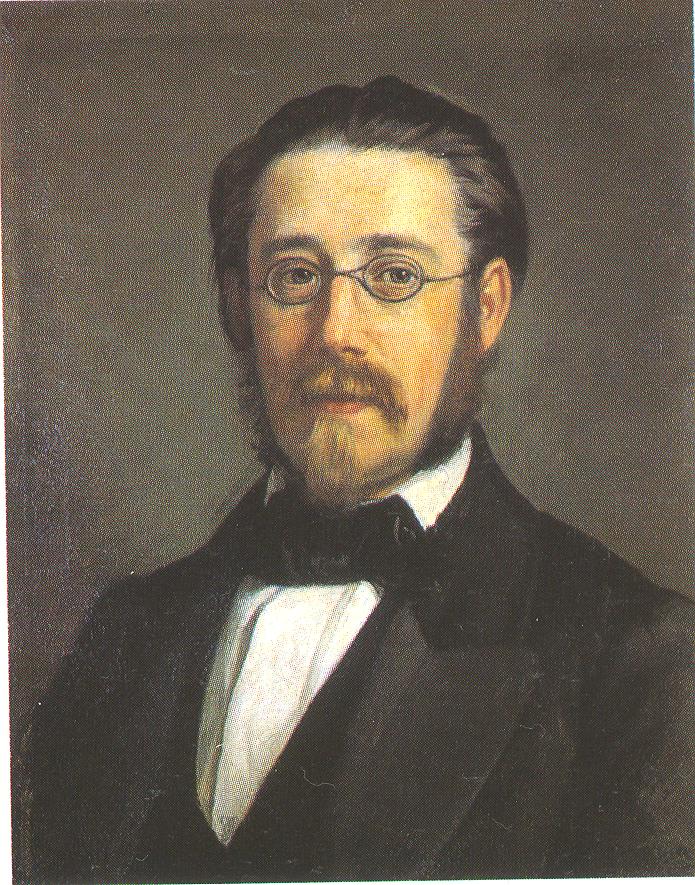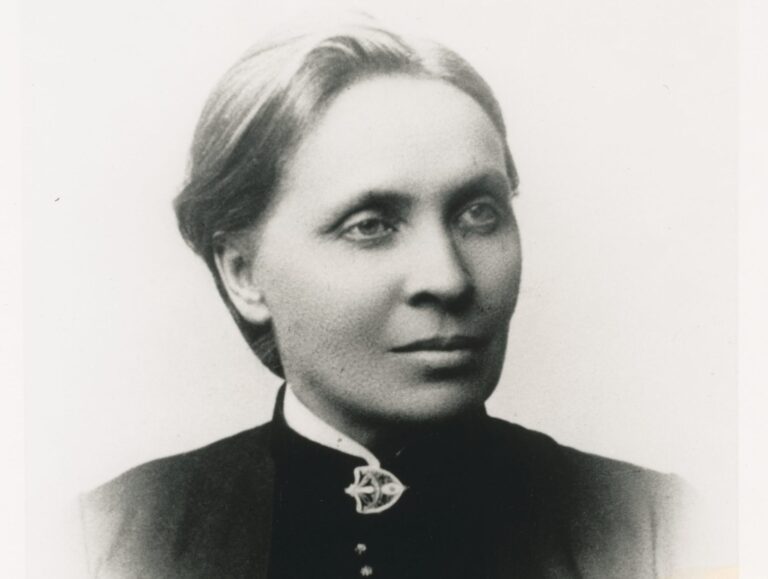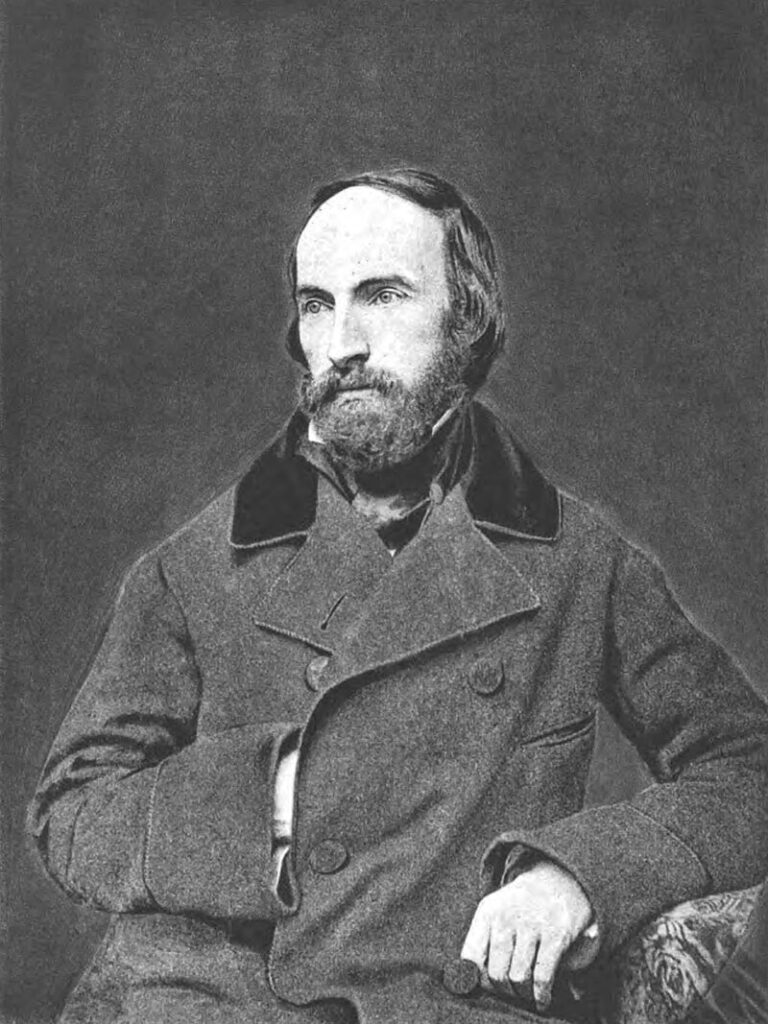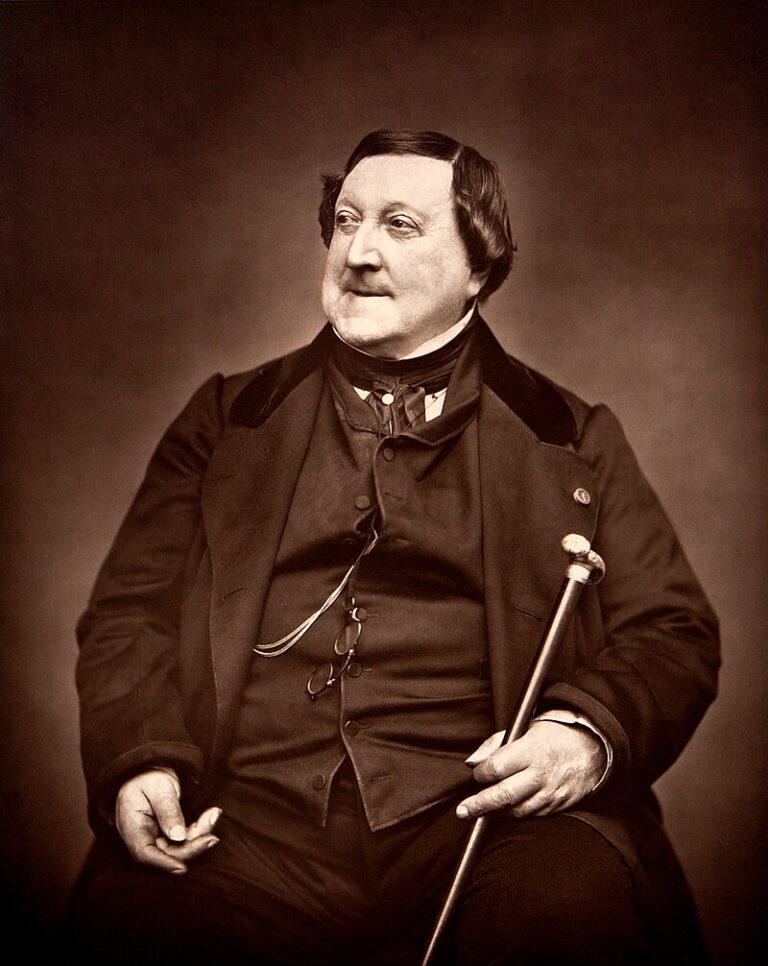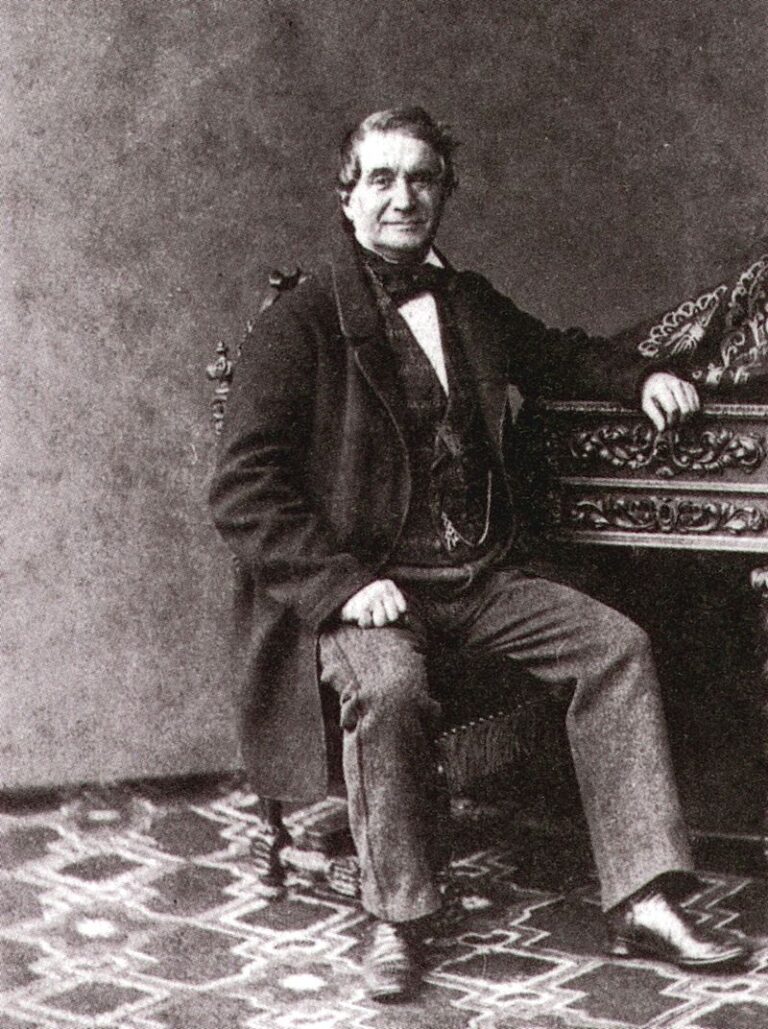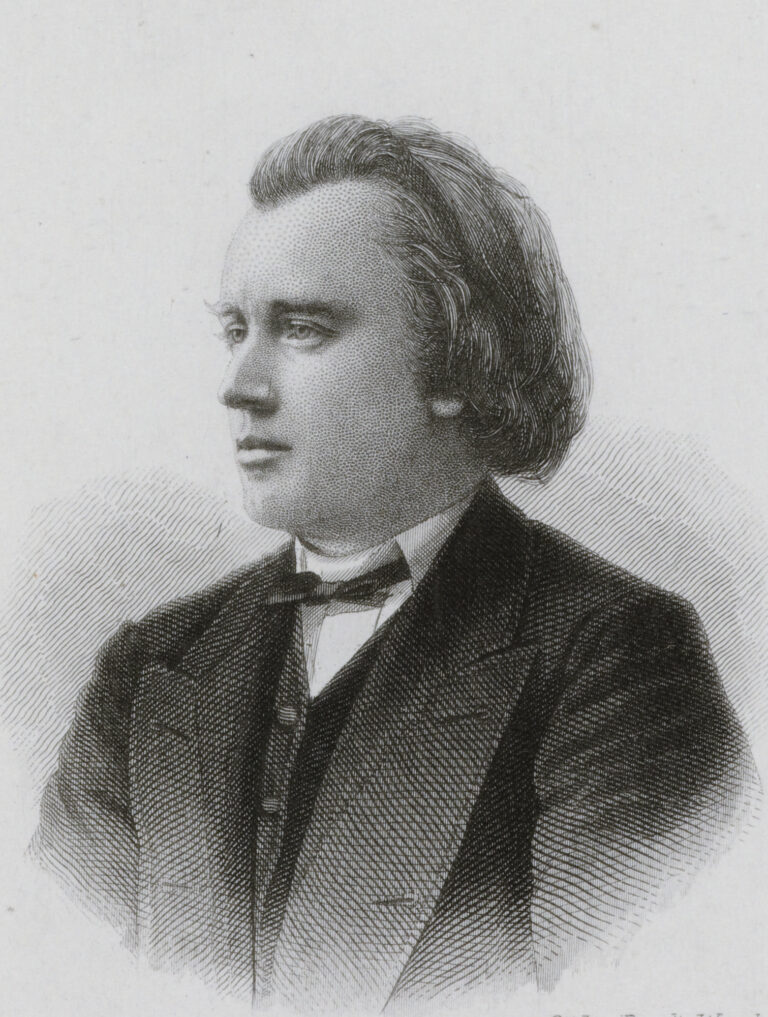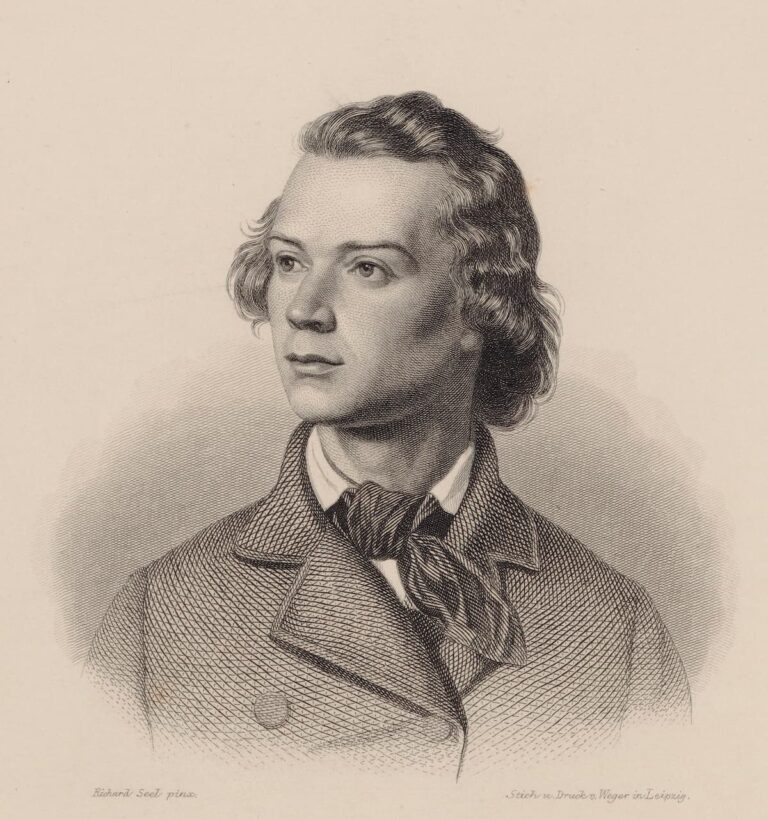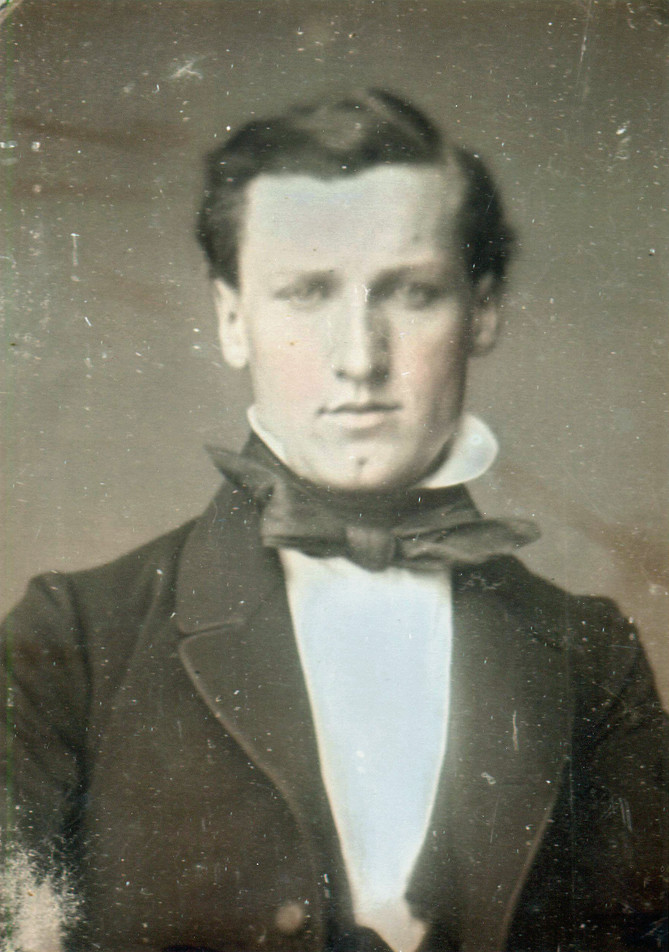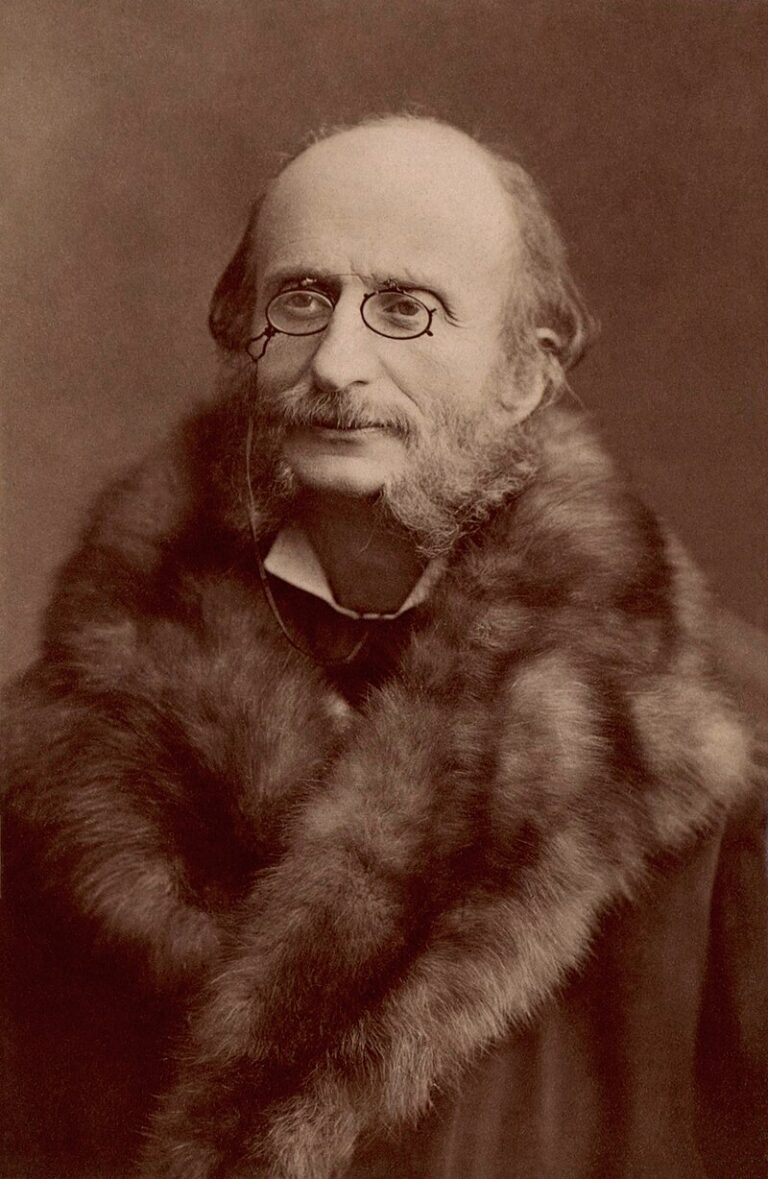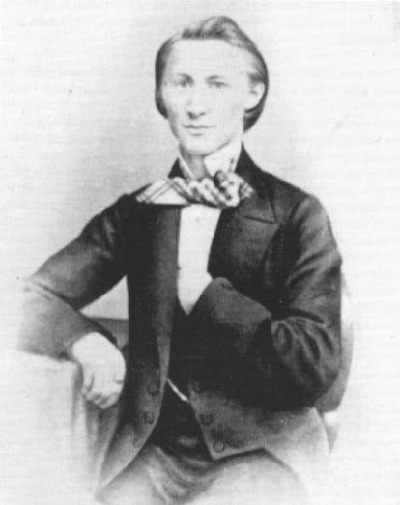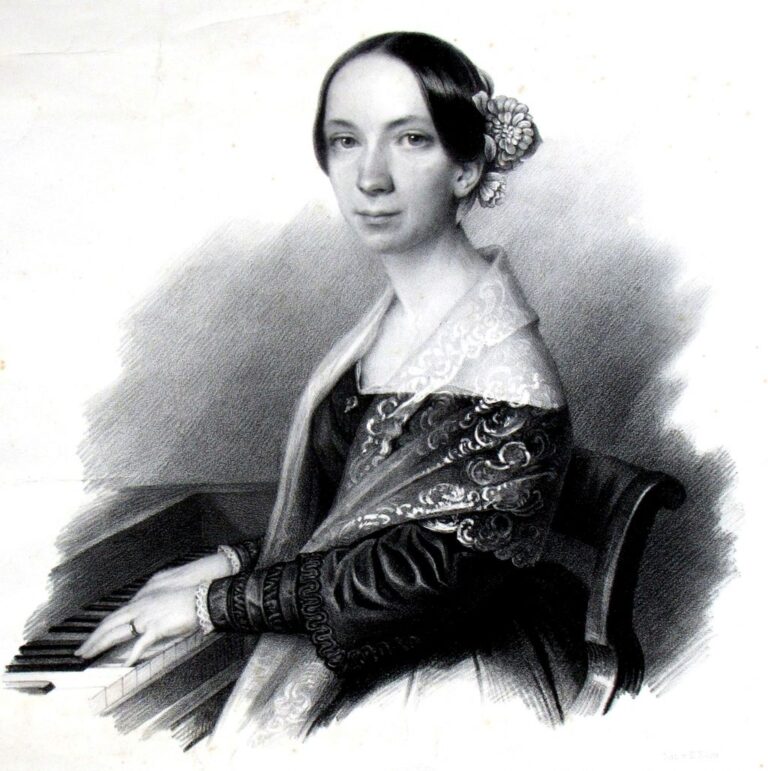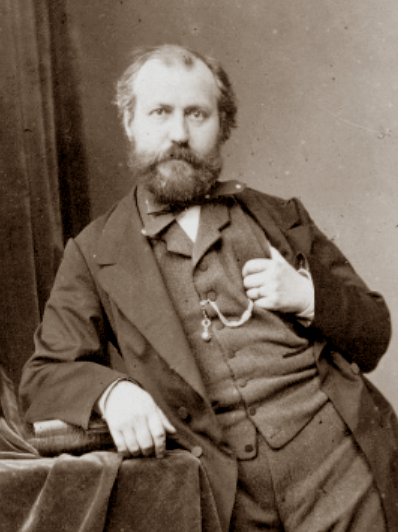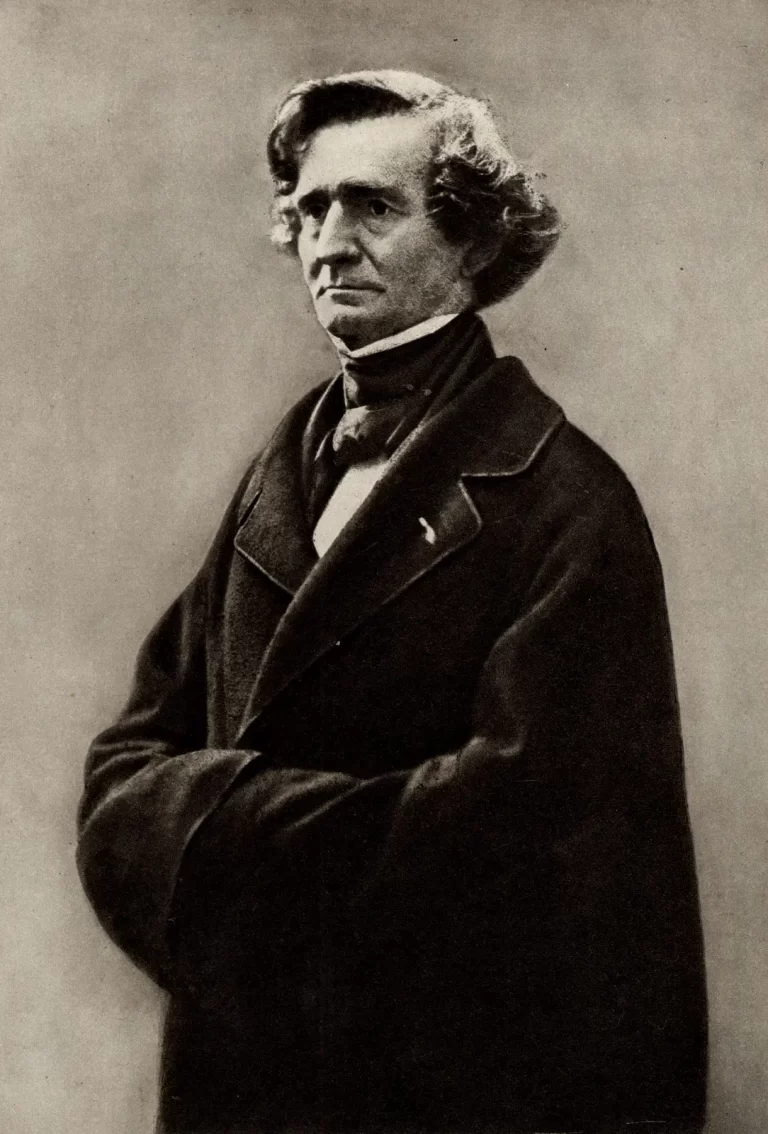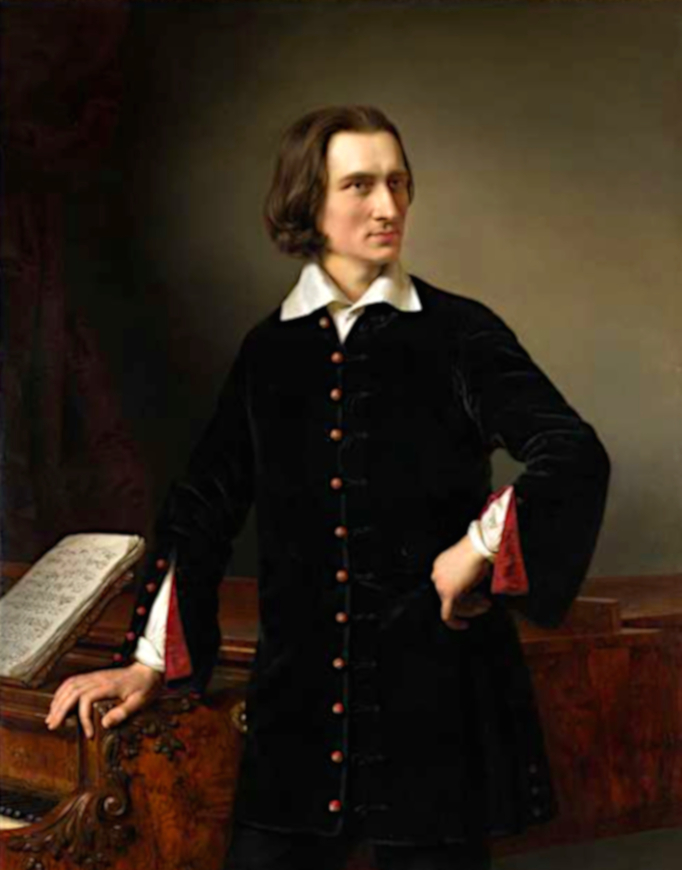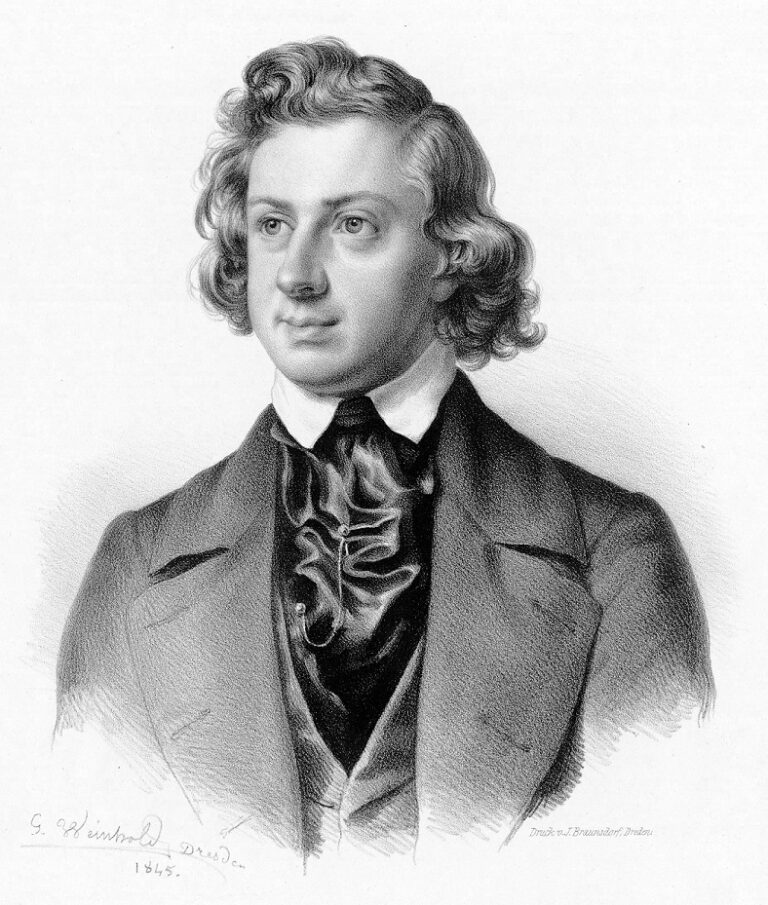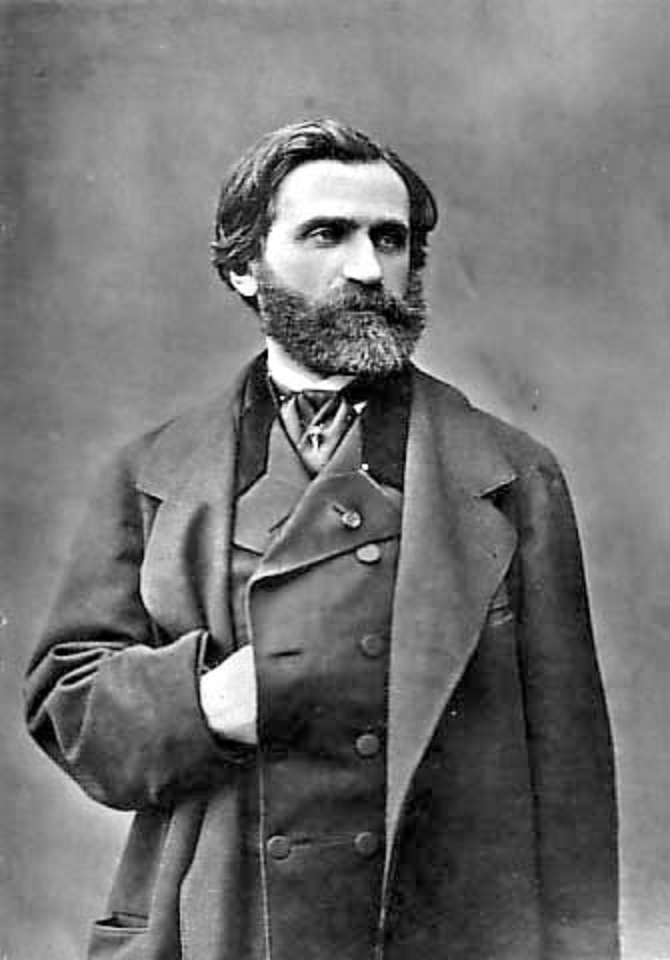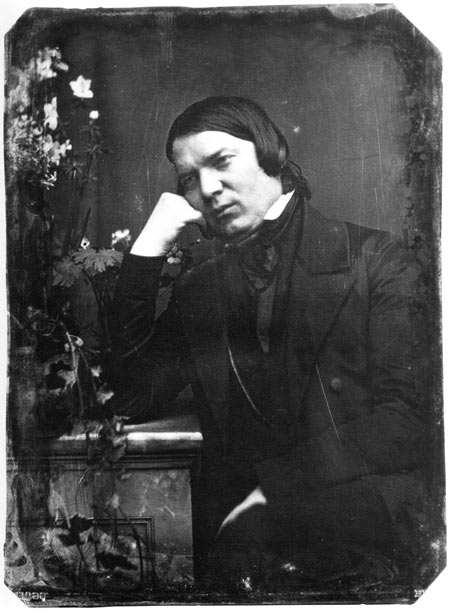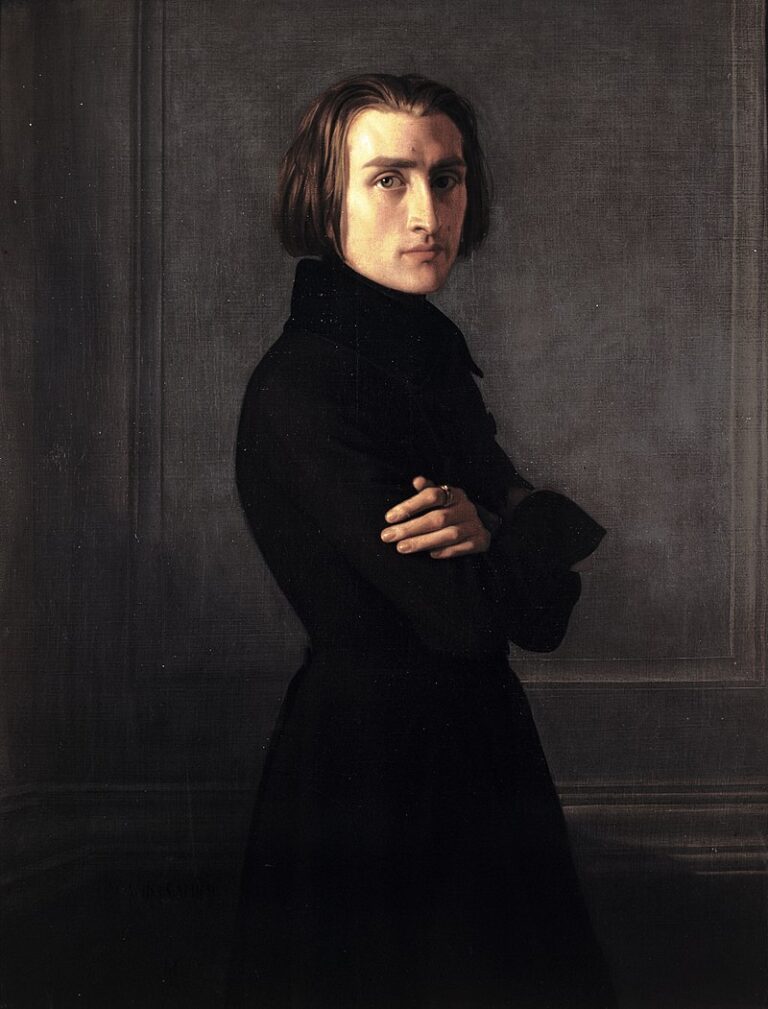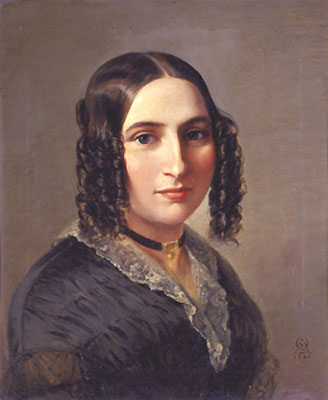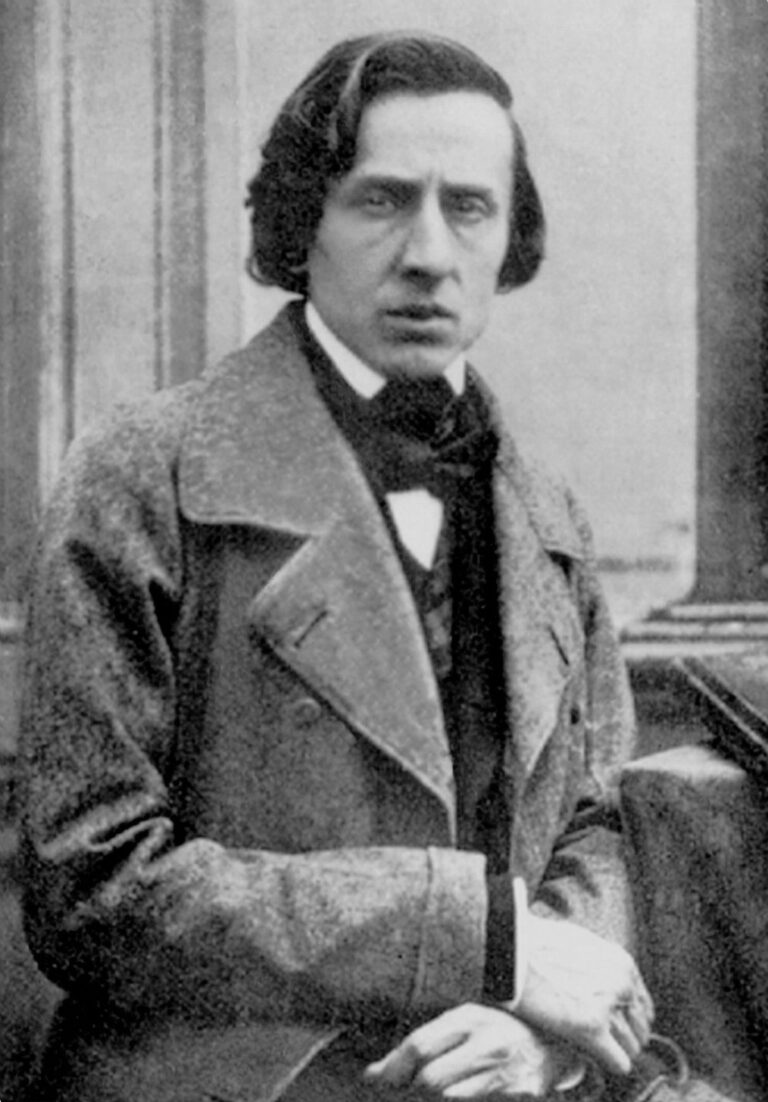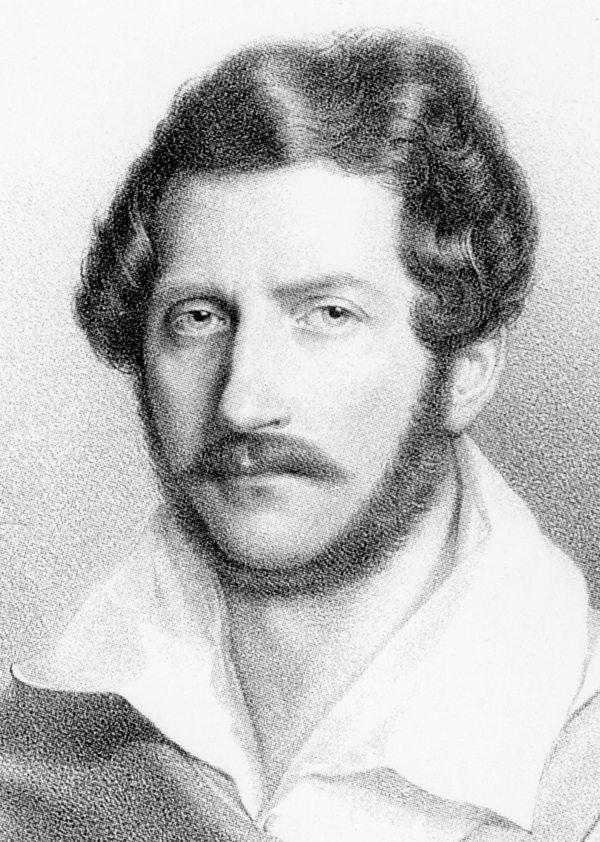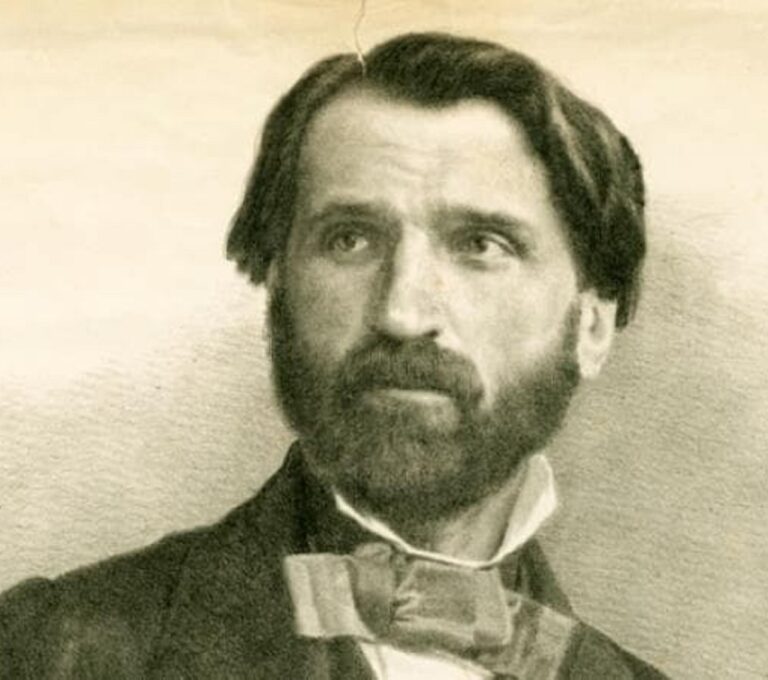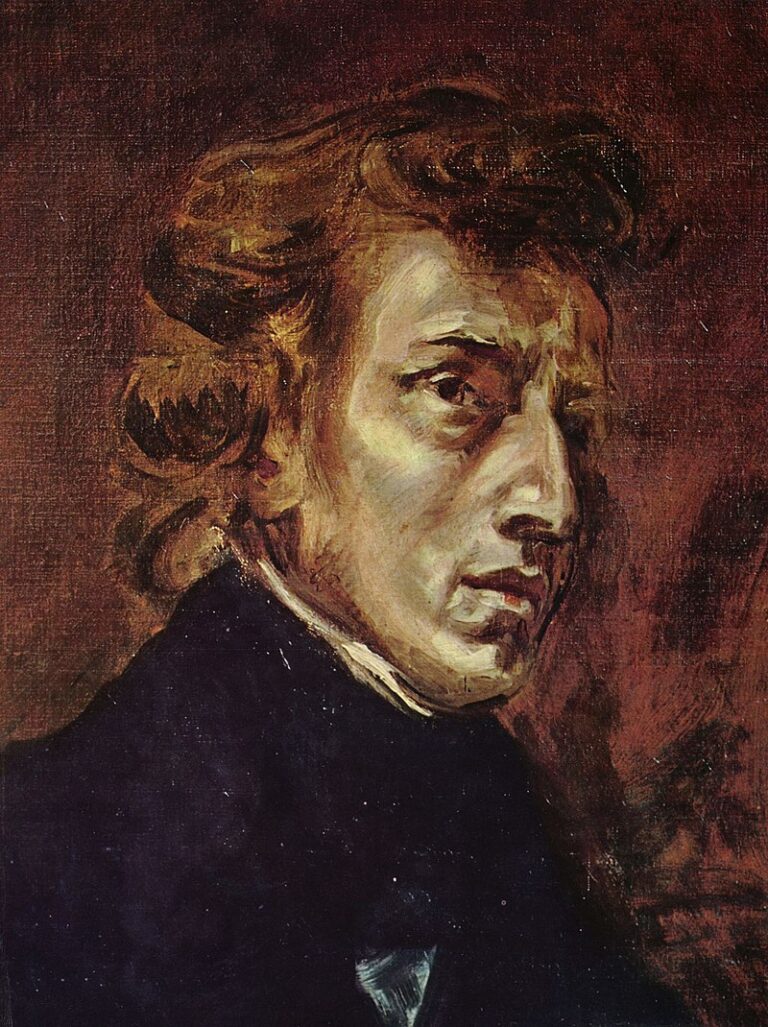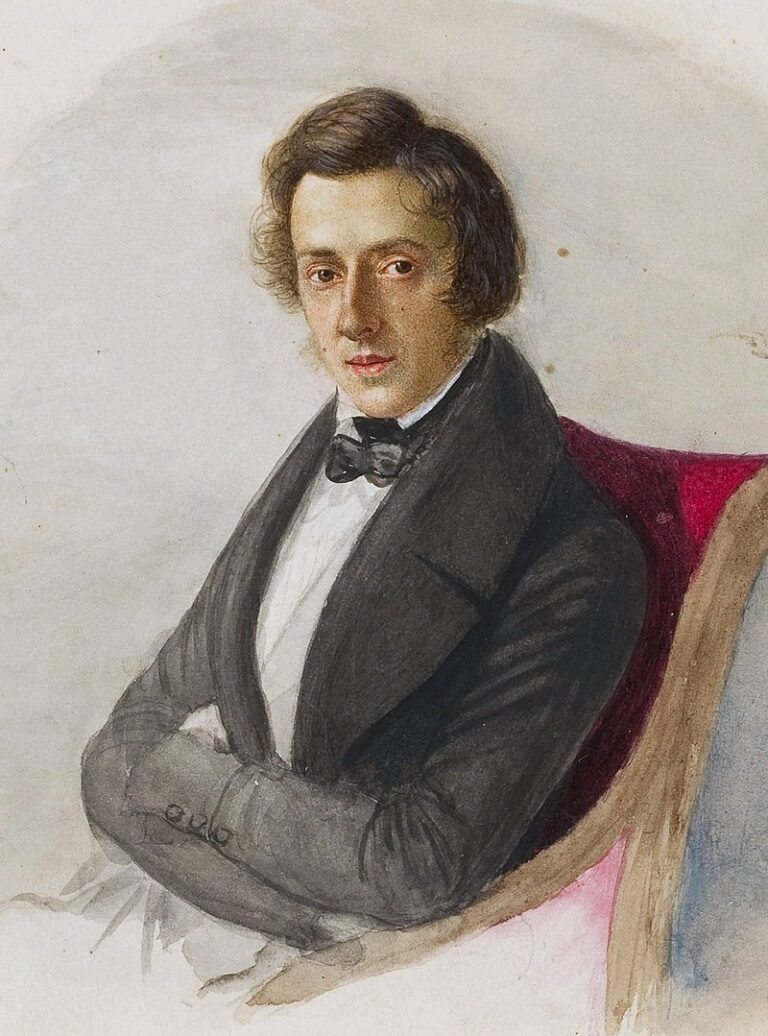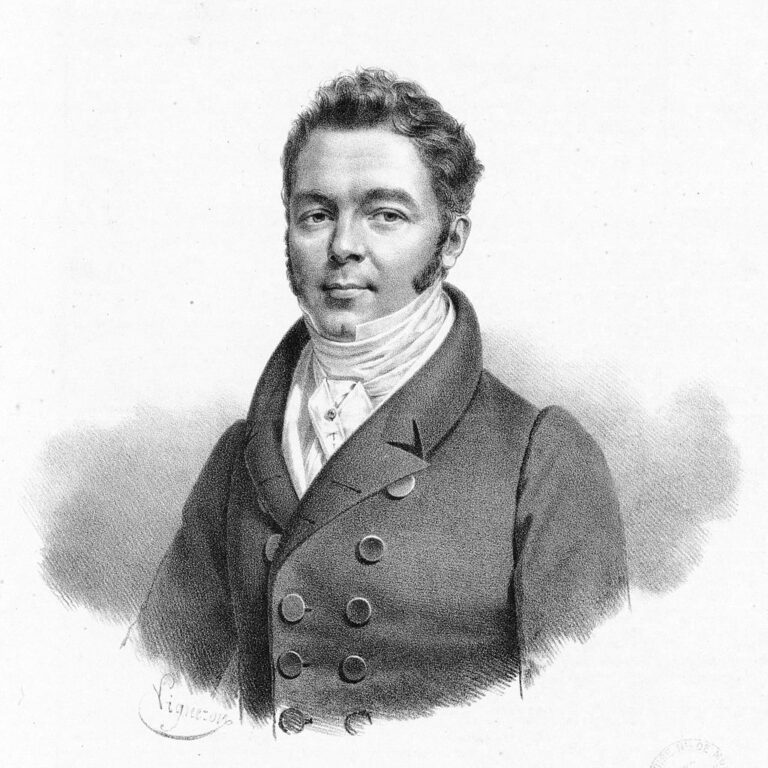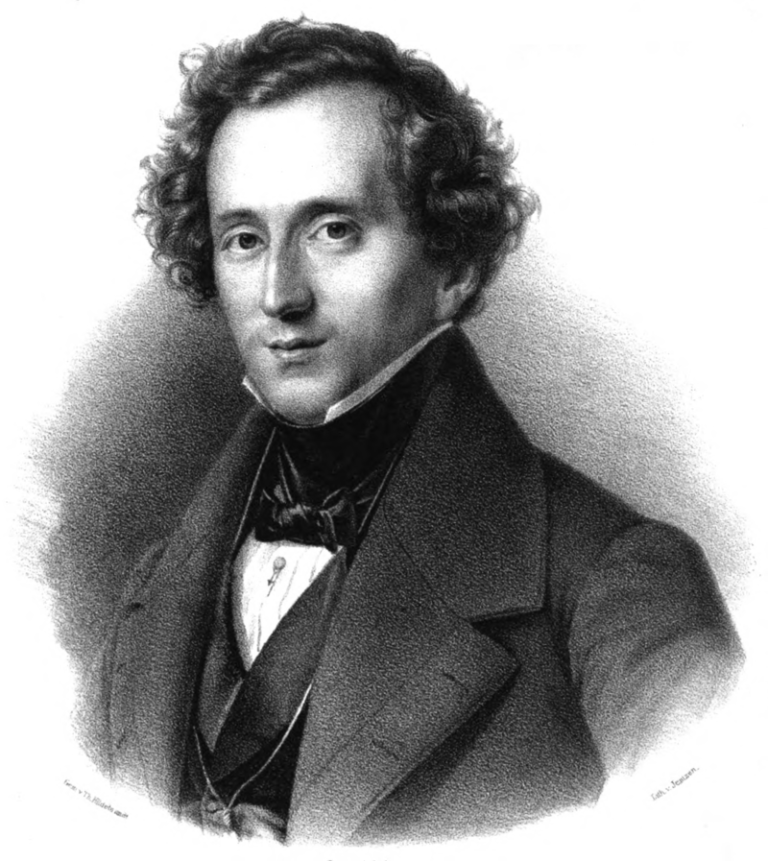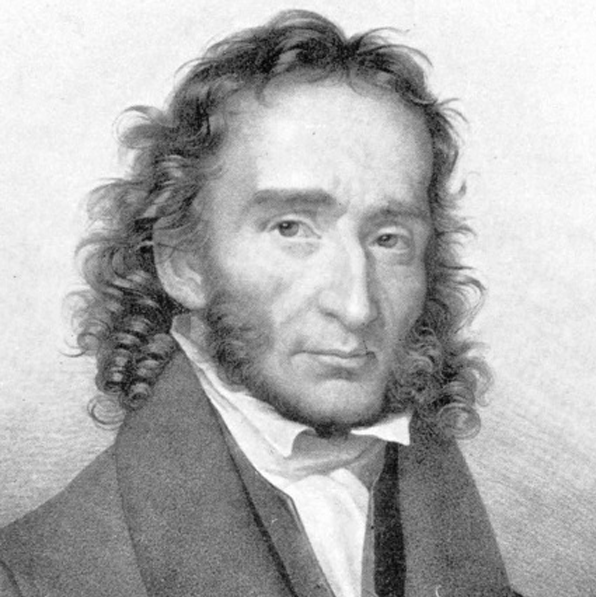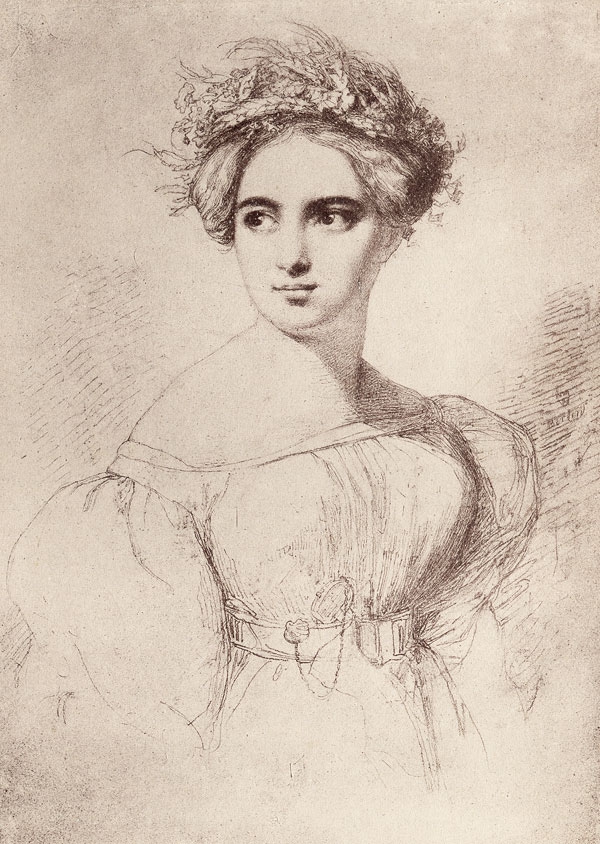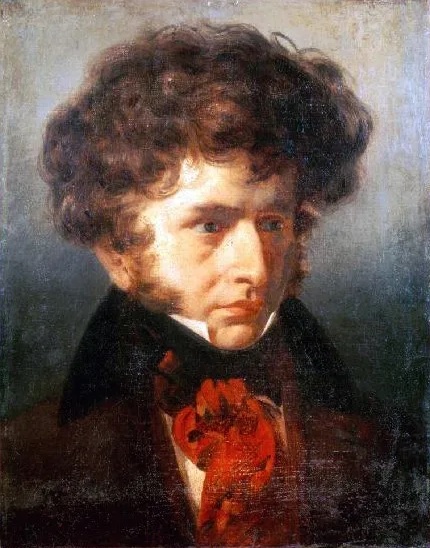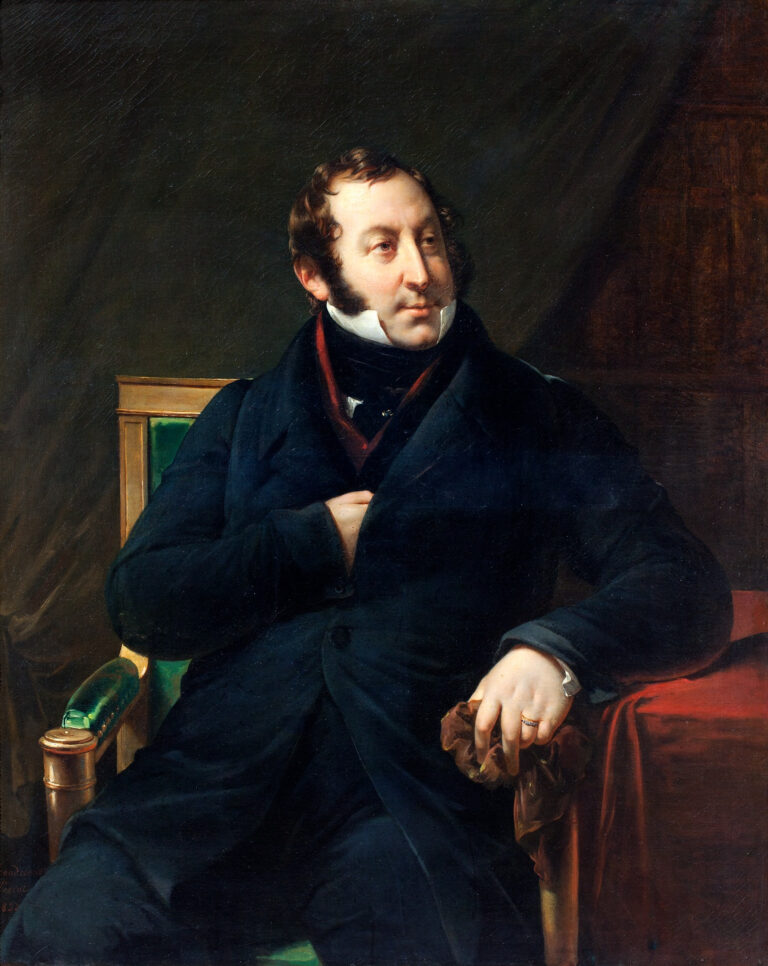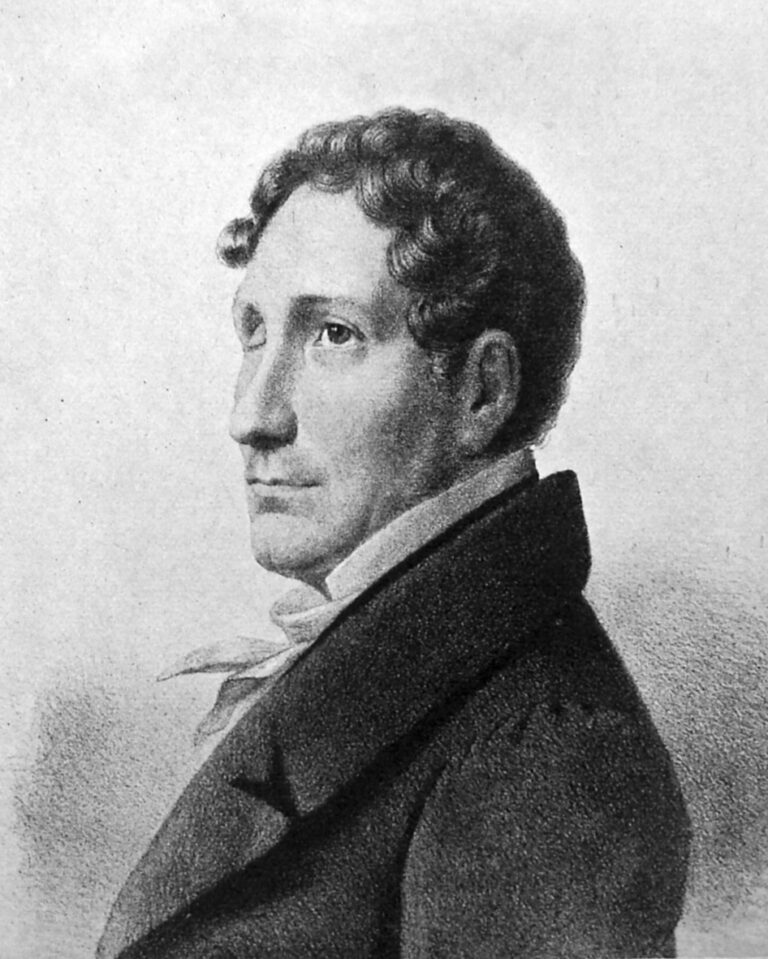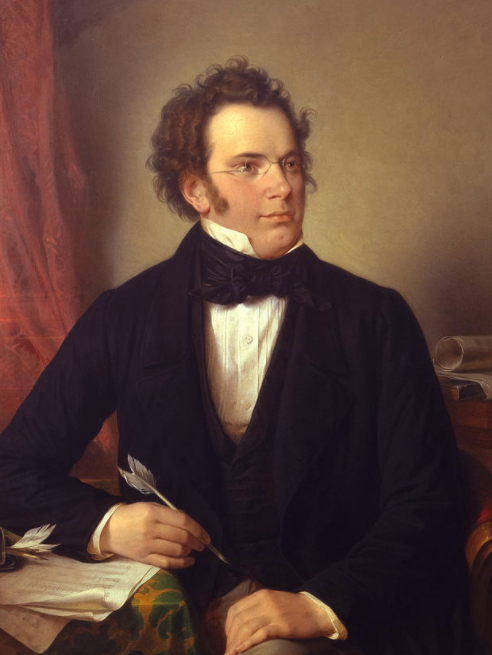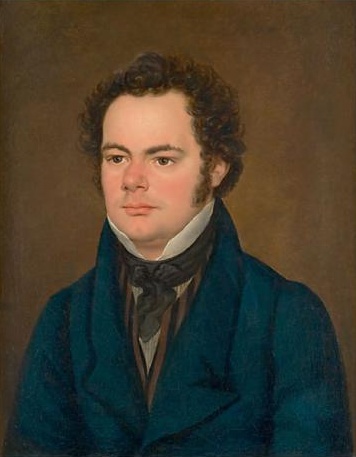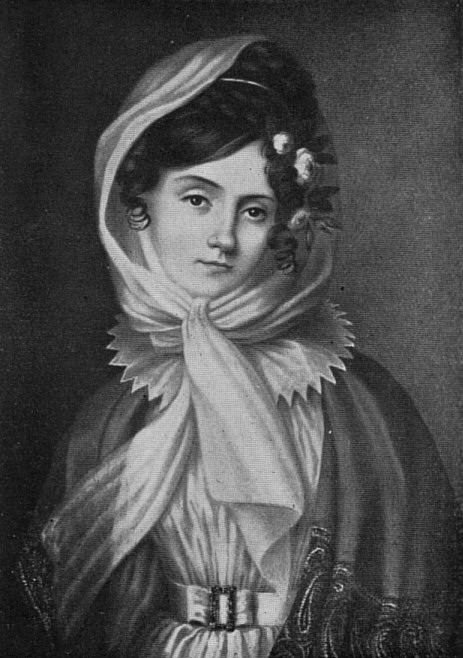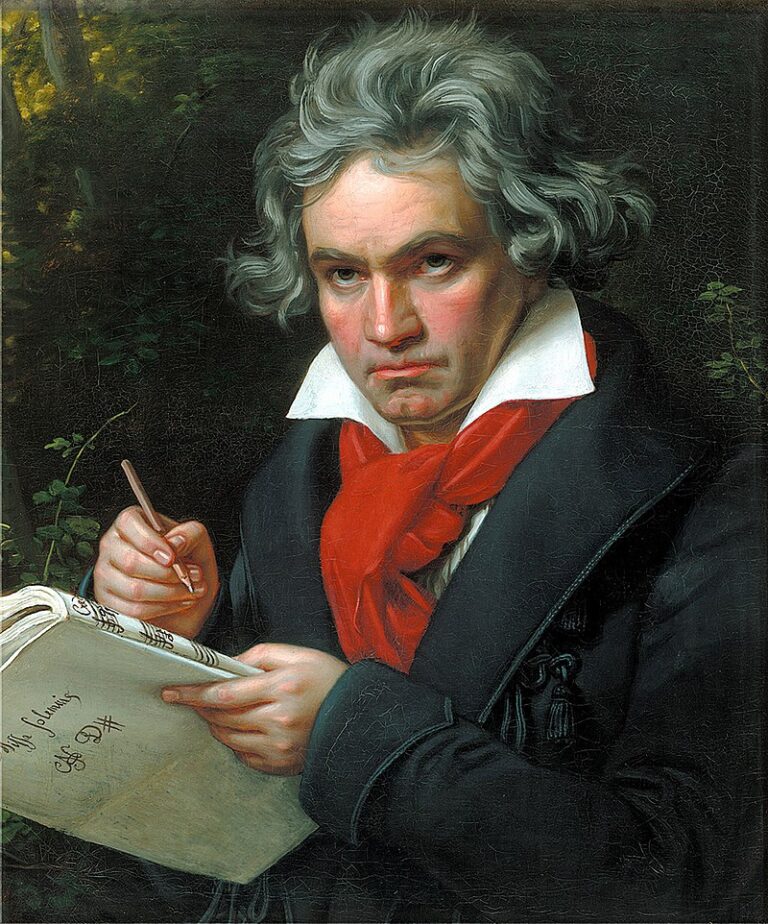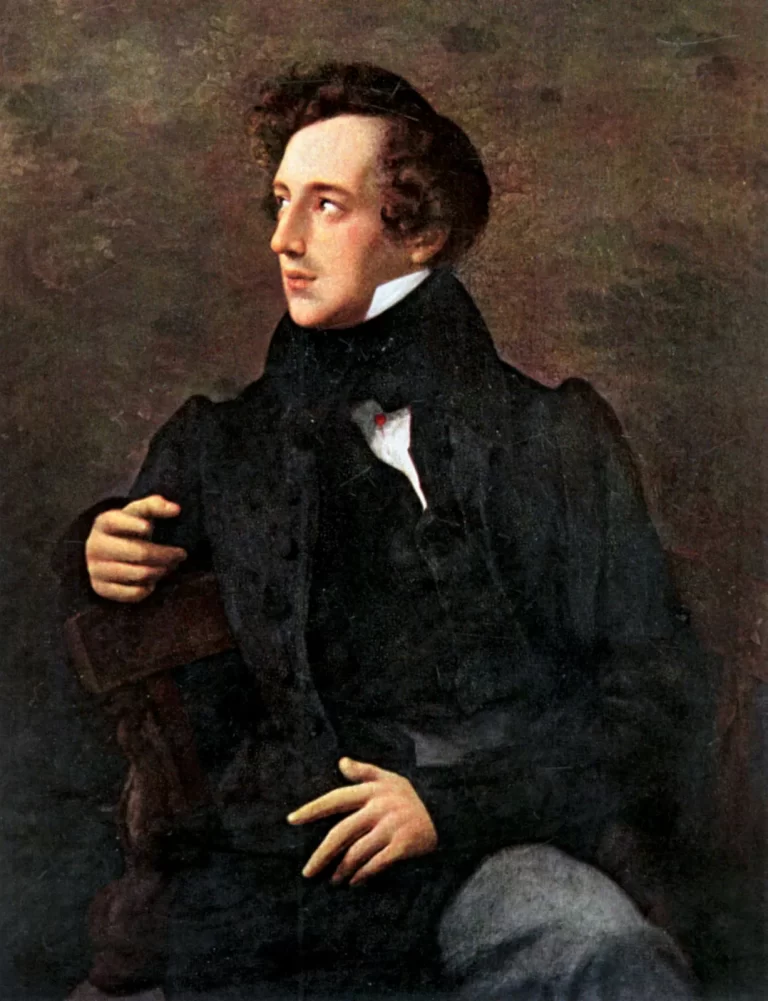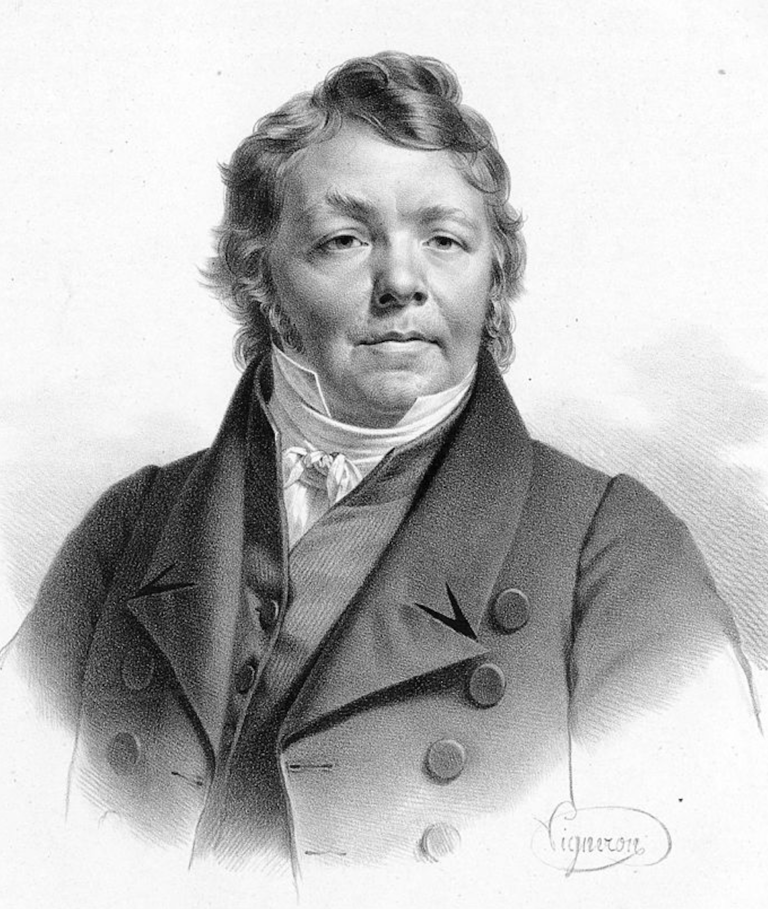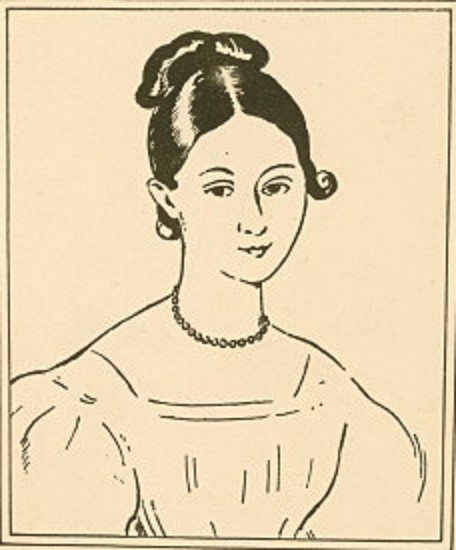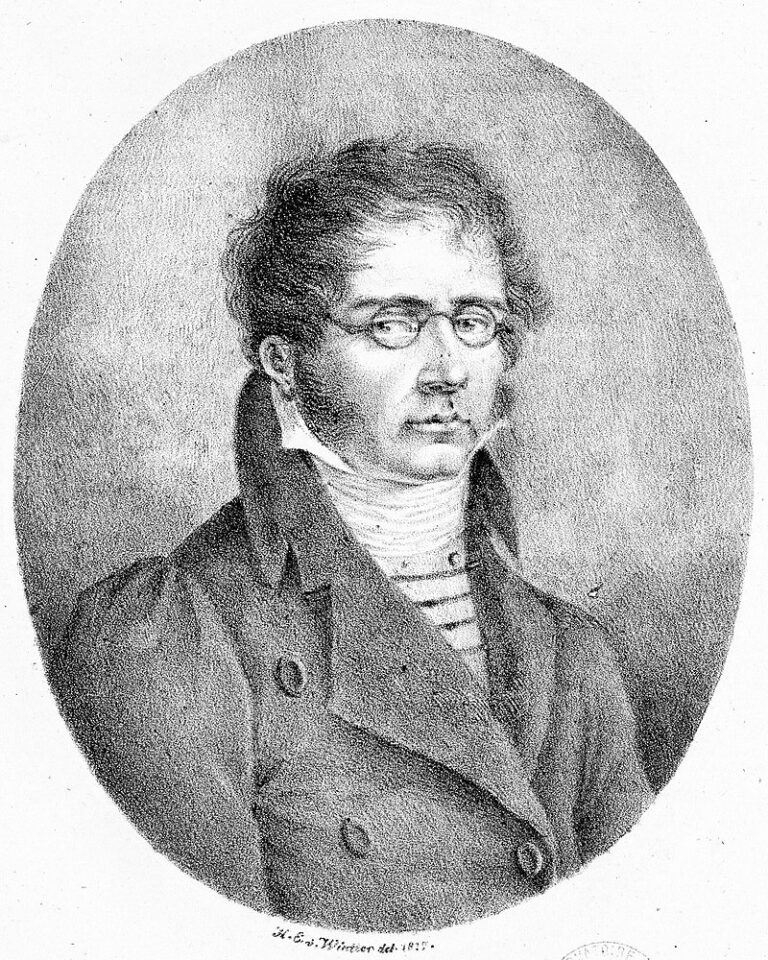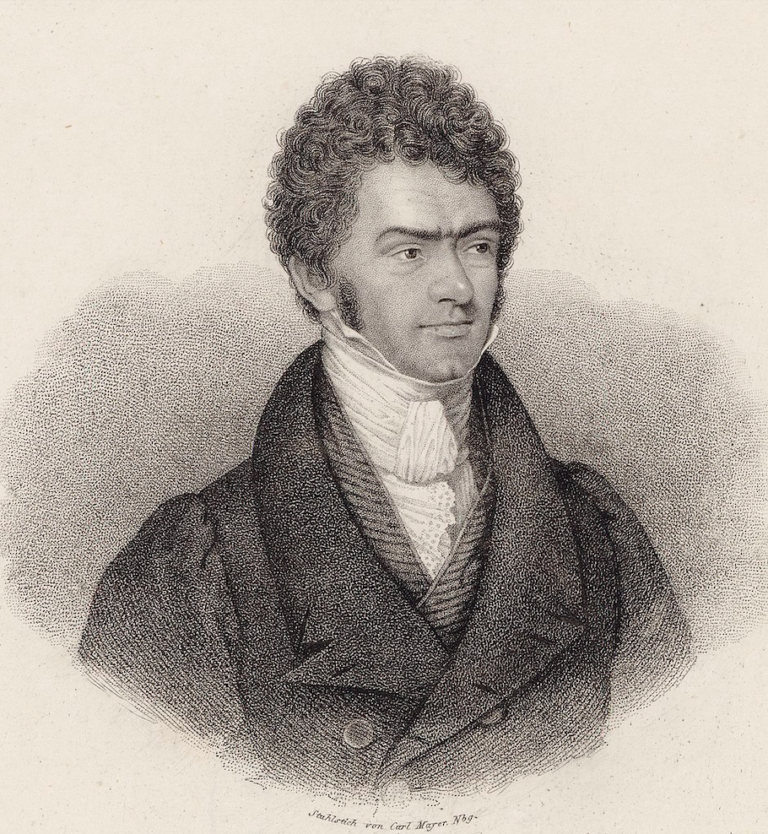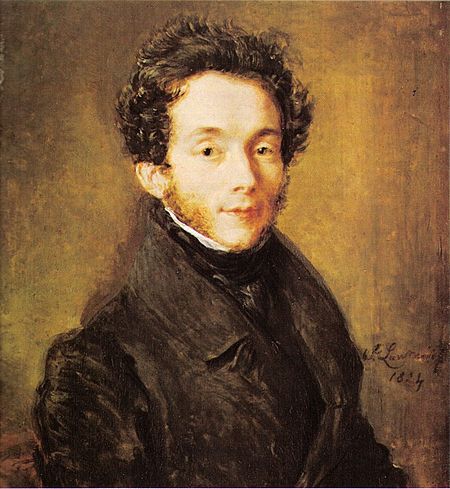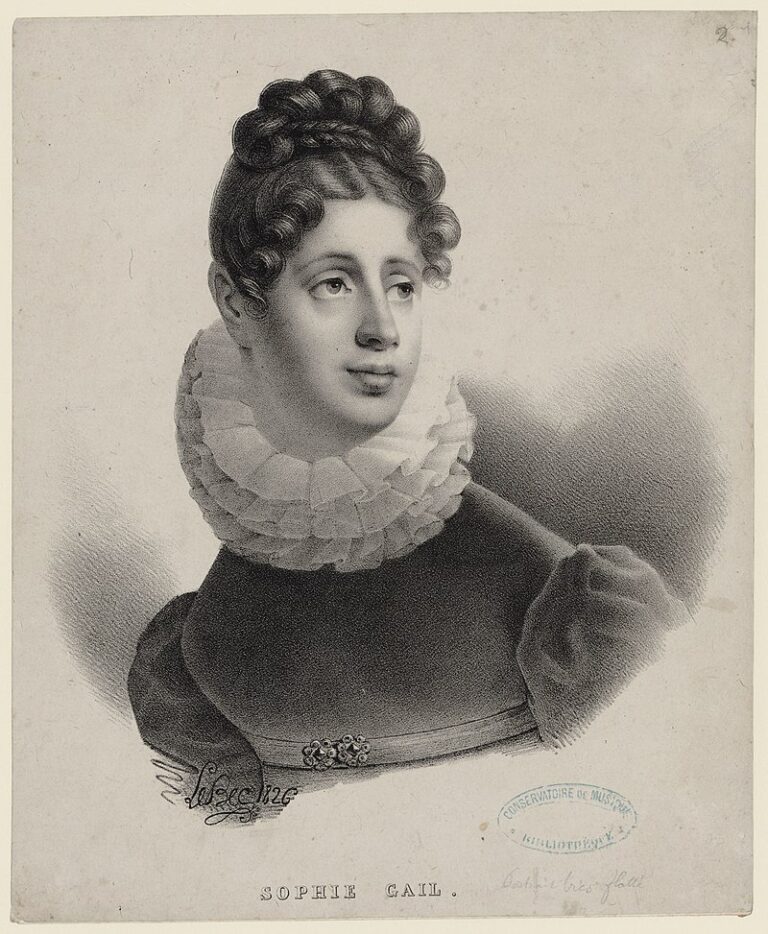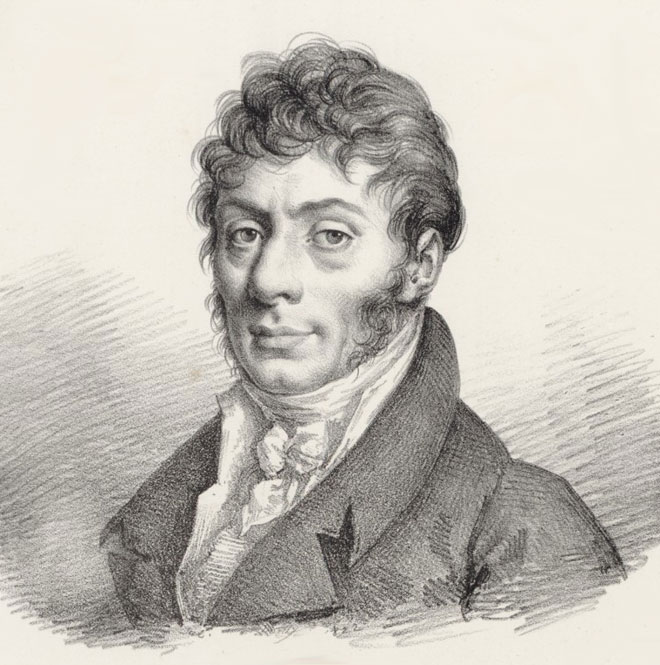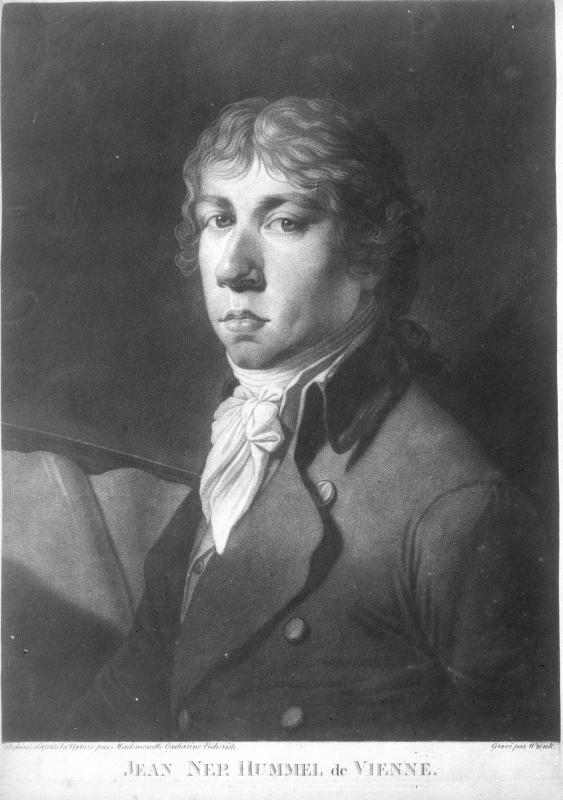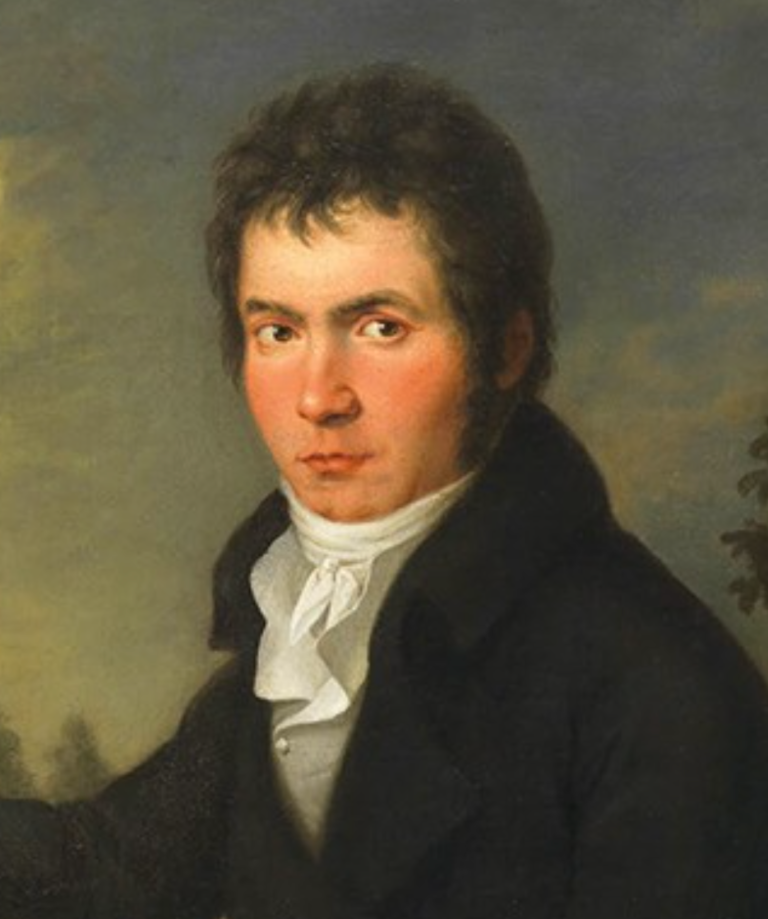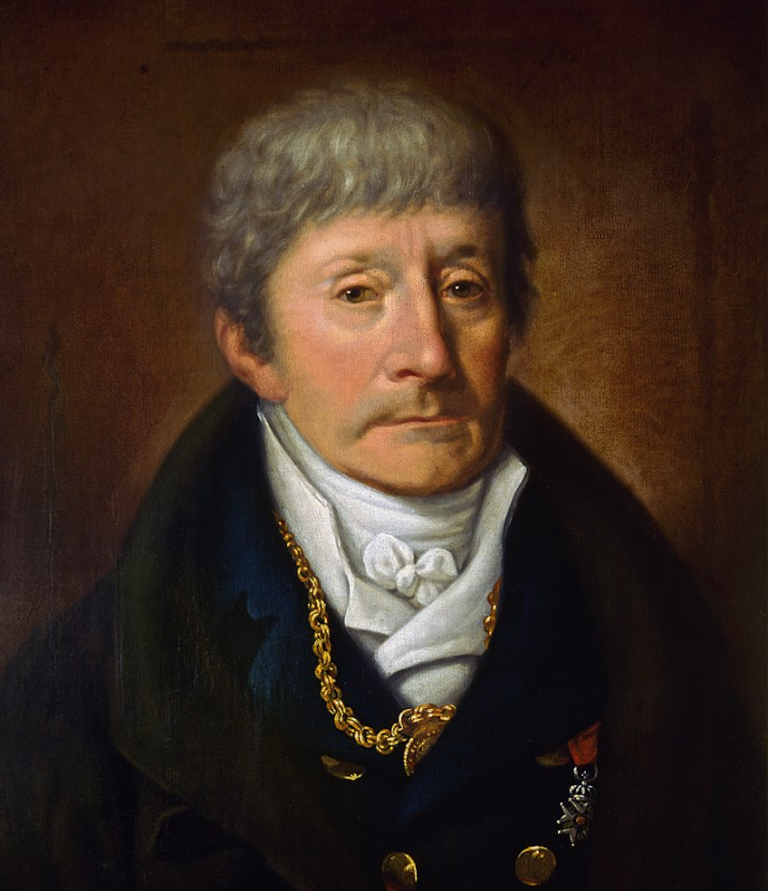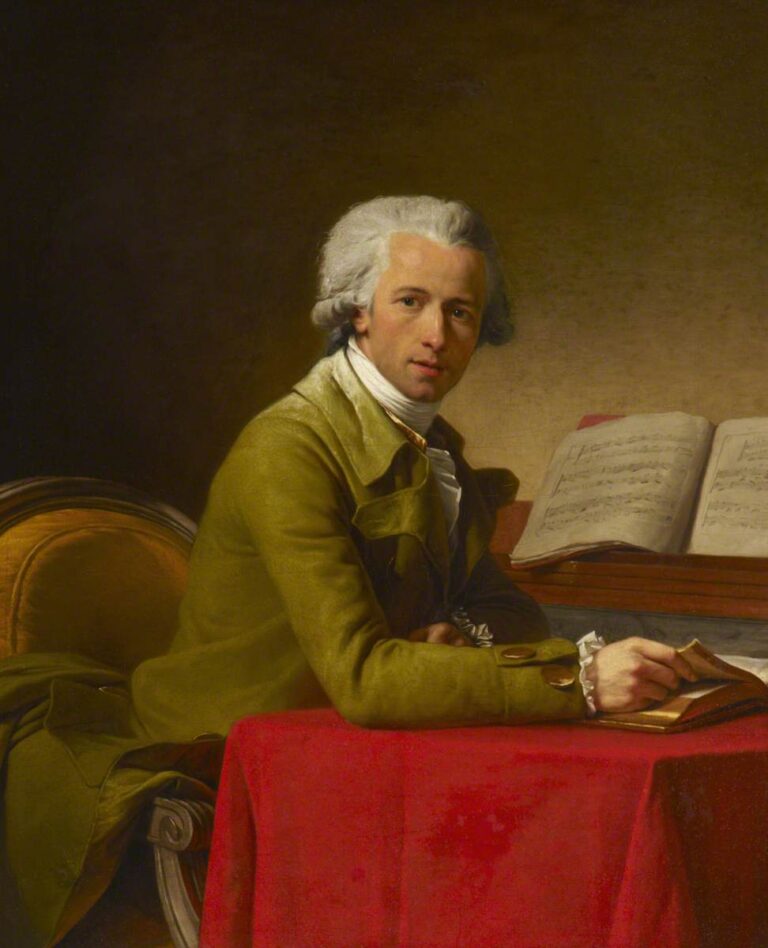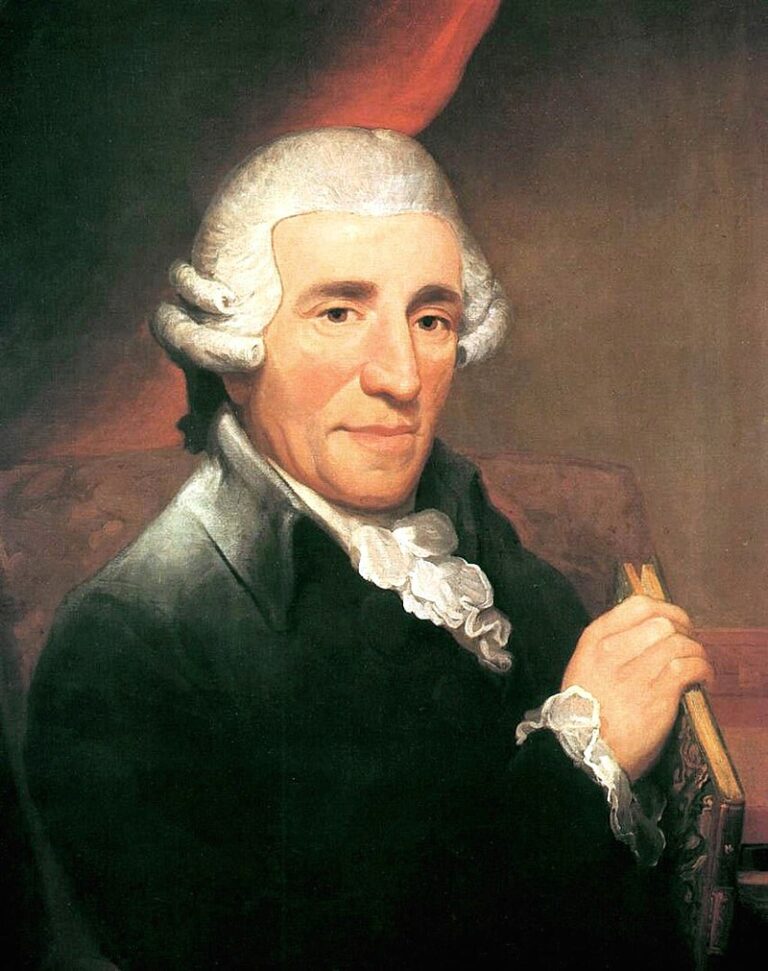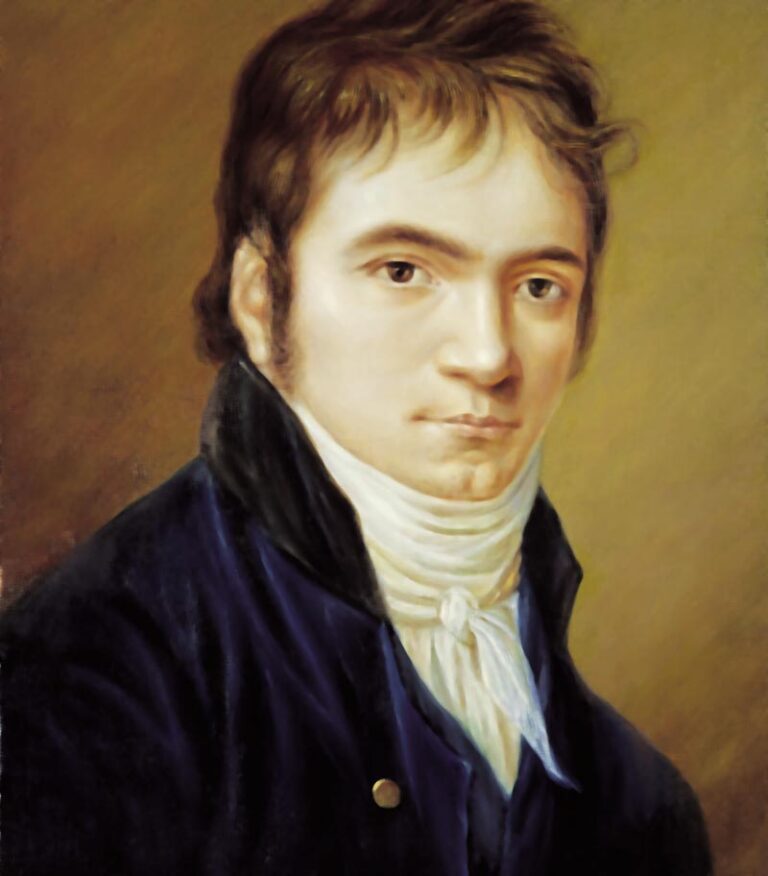All blog posts
He was a man who might have made a career writing light operetta. He could play the piano as well as Franz Liszt. He wrote a remarkably accomplished symphony aged just 17. But Georges Bizet could also be strangely diffident about his talent and conceal it like a guilty vice ...
He is often called “The Father of Czech Music” and yet for much of his life Bedřich Smetana took musical inspiration from beyond his homeland. He also did not learn to speak his native tongue until he was almost 40 years old ...
In an era when women weren’t supposed to play church organs, compose symphonies, or express political opinions, Elfrida Andrée did all three – while also moonlighting as a feminist agitator and Sweden’s first female telegraph operator ...
William Henry Fry had a low opinion of American music and a correspondingly high one of himself. "Music is at a miserably low ebb in the theatre and concert room,” he once said of his homeland. He bemoaned America’s general musical illiteracy, claiming there were "not twelve persons in the twenty four millions ...
In the 1820s, Gioachino Rossini had been an unstoppable force of nature, turning out brilliant and vibrant operas at a mindboggling rate. His opéras bouffes in particular had set a gold standard for the rest of Europe. But then, not long after completing his masterly Guillaume Tell and still well short of his fortieth birthday ...
Cesare Pugni was a highly accomplished composer of ballet music who never quite mastered the rest of his life. Supremely talented as he was, he was prone to destructive habits and very good at blowing up his career from time to time. Where he succeeded, he often did so in spite of himself ...
There was something innately cool about Johannes Brahms. Down to earth, unpretentious and blessed with a rich sense of humour, he was the Romantic who never got too carried away. He had an uncanny knack for always appearing to know what he was doing and where he was going. As an artist, he was a model for ...
Musical fashions can be as fickle as authoritarian regimes, especially if you’re a composer. One moment your name is everywhere, everyone wants a piece of you and you are feted as an integral symbol of the zeitgeist. Then a coup d’etat swings by and switches government, and suddenly you’re out in the cold ...
You can love or loathe Richard Wagner. But you can never overstate his monumental influence. Few other western artists have left such a profound impression upon their age. He revolutionized operatic norms, opened up new realms of harmonic possibility and, most strikingly, fused music, dance ...
Although a musical giant of mid-nineteenth century France, Jacques Offenbach was surprisingly tiny in person. A spindly, bird-like figure, seldom weighing more than forty-five kilograms, he was “the least imposing man in appearance one could imagine” according to an American music critic ...
Whenever we talk about the tragedy of an artist being cut off in their prime, we might spare a particular thought for poor Julius Reubke. He was cut off almost before he had got started. So brief was his time on earth that he made the likes of Schubert, Mozart and Chopin look like venerable old men by comparison ...
Regarded by many as the greatest female composer of the nineteenth century, Emilie Mayer was also one of the most fortunate. Helped in no small part by a generous family inheritance, as well as a stoical aversion to marriage, she was able to carve out a life and career largely on her own terms. “She claimed music as her life’s calling," ...
In late nineteenth century France it was generally agreed that Charles Gounod was the living embodiment of French music. After that he divided opinion to a surprising degree. One half of the country thought him an operatic genius on a par with Verdi and Wagner. The other half considered him a conservative reactionary ...
When he was twelve years old, Hector Berlioz fell passionately in love with a girl six years his senior. Her name was Estelle – “tall, graceful, with large, grave, questioning eyes that yet could smile," he fondly recalled, "hair worthy to ornament the helmet of Achilles, and feet – I will not say Andalusian, but pure Parisian ...
Few figures in nineteenth century classical music have divided opinion as Franz Liszt did. It seemed you either revered or ridiculed him, and quite often for the same reasons. And yet you couldn’t ignore him. In the 1850s, he was probably the most important composer in Europe. He was certainly one of the most innovative ...
Once regarded as the doyen of Danish music, Niels Gade was a man who always seemed to know how to make the best of himself and his circumstances. Reliable, hard-working, even-tempered and adaptable, he was popular with almost everyone who knew him – “the clever, good-natured Niels Gade” ...
Despite his status as one of Europe's best-loved and most iconic opera composers, Giuseppe Verdi also had a reputation for being the kind of man you did not mess with. It was a side to him his various collaborators – impresarios, librettists, singers or publishers – would all come to accept over time ...
Things seemed to be going well for Robert Schumann. His career was flourishing, while marriage and fatherhood appeared to have stabilized his once youthful waywardness: “I have learned to command my music and myself better”, he declared ...
Long before Justin Bieber, Tom Jones, the Beatles or Frank Sinatra, there was Franz Liszt. He was not quite history's First Rock Star. Several before him, including Alessandro Rolla, John Field, Niccolò Paganini and the eighteenth century castrato legend Farinelli, might have laid equal claim to such an honour. But Liszt would certainly take things to a whole new level, lending his name to an astonishing pan-European craze of the 1840s: Lisztomania ...
Although widely credited for putting the Russianness into nineteenth century Russian music, Mikhail Glinka was an unlikely standard bearer. According to one of his musical successors, Pyotr Ilyich Tchaikovsky, the aristocratic Glinka was “very much of his time, pettishly vain, intellectually underdeveloped, full of vanity and self-adoration…”
Shortly after marrying into one of Berlin’s most illustrious families, the German court painter Wilhelm Hensel paid creative tribute to his adopted clan. Entitled “The Wheel”, his 1829 pencil sketch depicts eight figures standing in circular formation around one central figure ...
There were three distinct phases to Clara Schumann’s long and eventful life, each one shaped by an intense relationship with a talented but complicated man. Over her childhood and youth loomed the overbearing figure of her father, Friedrich Wieck, a strict pedagogue who would work his daughter like a galley slave at the vocation he had chosen for her ...
When once asked what he did for a living and whether he still wrote music, the then fifty-something Franz Berwald replied with a wry smile, “no, I am not a composer, I am a glass blower.” He was not speaking in jest...
One of the main characters in George Sand’s 1846 novel, Lucrezia Floriani, is a Polish aristocrat named Prince Karol de Roswald who becomes the heroine’s lover. But for those personally acquainted with Sand – and with her own romantic partner of the past eight years ...
Gaetano Donizetti used to say that his early life emerged out of darkness. Not least there was the windowless basement apartment, located just outside Bergamo in northern Italy, in which he had grown up. “My birth is covered in mystery for I was born ...
In the popular imagination, Giuseppe Verdi was carved rough-hewn from the Italian soil, his destiny inseparably linked to that of his beloved homeland. With Italy occupied and partitioned by foreign powers for the first half of his life, he longed for a time when his country could be unified and independent once more ...
Creating music came so naturally to the young Adolphe Adam that he had little inclination for studying technique or theory, or even for bothering how to read musical notation. “I loved music”, he recalled, “but I didn't want to learn it. I would sit quietly for hours, listening to my father play the piano ...
Given how much Robert Schumann loved the written word, it is surprising how relatively long it took him to embark on his major song settings. Some of it may have been down to an in-built snobbery towards vocal writing – he once asked a friend, “are you perhaps like me – someone who all his life has placed vocal compositions ...
One of history’s unlikelier couples, Frédéric Chopin and George Sand were living proof that sometimes opposites really do attract. While he was reserved, sensitive, sickly, his personality somewhat shaped by old aristocratic codes, she was rebellious, ebullient, hedonistic and something of an iconoclast ...
Musical revolutionary, political exile, reluctant virtuoso, personal enigma: Frédéric Chopin was all of these things and more. Although famous across Europe by his early twenties, he was not a typical celebrity. Beneath a well-polished aristocratic charm lurked a somewhat detached and ironic man ...
In the mid-1830s Hector Berlioz was short of funds.. He had just got married to an Irish actress named Harriet Smithson, after several years of amorous pursuit. Although Harriet had once taken the Parisian stage by storm with her Shakespeare interpretations ...
Robert Schumann was a man divided. Handsome, charismatic and ebullient, he could also be morose, as well as painfully shy and inarticulate with strangers. A richly imaginative, innovative and occasionally rebellious artist, yet there remained a meek ...
History has dealt a rather unkind hand to George Onslow. Largely unknown today, he was ranked as a first-rate composer in his day and many of Europe’s finest talked about him in the same breath as Haydn, Mozart and Beethoven. His music was published widely and internationally, and he was showered with almost every possible public honour ...
It is hard to overstate the achievements of Louise Farrenc. Aside from being the first woman to write a symphony, she was a fine concert pianist, an important musicologist and influential educator. Living through a particularly misogynistic time in French history, she managed to gain a professorship at the male-dominated Paris Conservatoire ...
If the gods had ever decreed that all composers should die at twenty, then Felix Mendelssohn would now be regarded as the greatest of them all. No other teenage composer has ever equalled the undisputed masterworks that Felix created in his adolescent years ...
Never before had the world seen anything like Niccolò Paganini. Half performing genius and half freak show, his impact on 1830s Europe was so immense that he became something of a legend in his own lifetime ...
If you ever wanted to make a powerful study of gender inequality in 19th century music – and its practical and psychological effects on talented, creative women – then Fanny Mendelssohn Hensel would be a pretty good place to start ...
Berlioz was a born iconoclast. Even in his student days, he showed little deference towards the canons of musical history. He thought nothing of profaning such names as Palestrina (harmonically unadventurous and overrated) or JS Bach (an oversized schoolmaster) ...
When Rossini first announced himself on the Italian operatic scene, he was widely seen as a creative breath of fresh air. His early operas were a “genuine thunderbolt out of a clear, blue sky" according to French biographer and novelist Stendahl ...
Although most people outside of Denmark have probably never heard of Elverhøj, for most Danes the work is a part of their cultural DNA. A national pageant, commissioned by Frederik VI of Denmark in 1828, it was a great hit in its day, and has rarely been out of favour since ...
Love and suffering were always synonymous in Franz Schubert’s mind. He once admitted that he had spent most of his life, creative and otherwise, “torn between the greatest grief and the greatest love…Whenever I attempted to sing of love, it turned to pain. And again, when I tried to sing ...
In the spring of 1826 Franz Schubert was experiencing a serious slump. He was in low spirits, short of money and most worryingly, struggling to write any music. In desperation he made one of his sporadic attempts to find steady employment, applying for a musical directorship at the ...
Largely overlooked today, Maria Agate Szymanowska was one of the most celebrated concert pianists of 1820s Europe. A personable and charming woman, her impressive list of professional contacts reads like a Who’s Who of famous early nineteenth ...
Beethoven's Ninth Symphony manages to do what no symphony had previously managed: to transcend musical boundaries. With its intricate psychological layers and allusive sidetracks, it is like a “construction of mirrors, reflecting and refracting the values, hopes, and fears of those who seek to understand and explain it,” according to Beethoven biographer, Nicholas Cook.
Felix Mendelssohn may well have been one of the most naturally gifted musicians who ever lived. As a young man, he wasn’t far short of astonishing. Aside from the striking preciousness of his youthful compositions (he was even younger than Mozart ...
Franz Schubert had a habit of not finishing symphonies. In the last decade of his life alone, he started six and completed just one. The other five were left abandoned, sometimes mid-phrase, and in various states of dereliction – a sketched-out movement here, a few scribbled notes there ...
It begins delicately enough: a unison C, reverberating softly across the strings, oboes, clarinets and bassoons. It swells to a forte before dissipating itself in a short fragment of melody. Silence, followed by a brief answering phrase in the violins. The whole passage repeats itself ...
In the 1820s and 30s, Luigi Cherubini was the notoriously short-tempered, officious director of the Paris Conservatoire, an institution he ran with the rigour of a crack SAS unit. Punctuality, order and discipline were all sacrosanct to him. He once physically chased a young student, a certain Hector Berlioz ...
There was little ideology behind Hummel’s art – he was not the sort to make sweeping political or philosophical statements. He would not tear up a dedication page in a fit of rage, offer short shrift to any performer who complained his music was too difficult to play, or throw hard-boiled eggs at ...
In middle age, Beethoven’s musical ideas were growing ever more expansive - rather like his pianos, in fact. He had a way of getting through the latter with almost indecent haste. His old friend and protégé Ferdinand Ries noted Beethoven’s penchant for accidentally damaging ...
When the celebrated French pianist and composer, Marie Kiené Bigot de Morogues, began to suffer serious health issues in her early thirties, there were whispers throughout Paris that it was sadly inevitable: that women were physically and temperamentally suspect and not designed to take on demanding ...
The theatre was in Gioachino Rossini’s lifeblood. Born in the small Adriatic city of Pesaro, some of his earliest memories were of touring with his musician parents from town to town, as they sought work in local operatic productions. Rossini senior was a French horn player (and occasional abattoir inspector), while his ...
John Field may well have been classical music’s first genuine rock-star. A world-famous pianist, he loved to perform in fashionable salons and glittering concert halls while relishing the money and adulation his fame brought him. Outside of performing venues, he devoted himself to a life of ...
It is a measure of Franz Danzi’s versatility that music historians have never quite agreed upon his overriding legacy as a composer. Was he a master of chamber music, especially in the early evolution of the wind quintet? Or was he the all-important mentor of Carl Maria von Weber ...
If you were measuring Johann Wilhelm Wilms’ current standing as a composer on a scale of one to ten, with one being “a little neglected” and ten “completely forgotten”, he would probably be about a nine. But had you lived in the Netherlands ...
Despite his varied and successful career as a composer, pianist, concert administrator and one-time amanuensis to Ludwig van Beethoven, Ferdinand Ries seems to have spent a surprising amount of his time trying to avoid conscription into an invading army, usually a French one ...
Weber was a man of many contradictions. He wrote the first German Romantic opera – indeed he practically invented the genre – and yet all of his training was in high European Classicism. He was near-sighted, consumptive and walked with a limp all of his life - Beethoven would ...
There is a temptation to regard social progress as an inevitable part of history, whereas it is often much more fragile than we think and all too easy to put into reverse. In later blog posts we will encounter several mid-nineteenth century female composers ...
Etienne Méhul must have been a resilient man. His career spanned countless political upheavals in his country – the French Revolution, the post-Revolution Terror, the First Republic, the Directory, the Consulate, the First Empire and then the Bourbon Restoration – and yet he not only survived each regime intact ...
Alessandro Rolla is best known today for having supposedly taught famous violin virtuoso, Niccolò Paganini, even if some doubt remains over whether he actually did so. The story goes that Paganini's father took his 13-year-old son to see Rolla, with the young prodigy recalling ...
A talented, dynamic colossus of a man, Johann Nepomuk Hummel was a key musical figure across the first three decades of the nineteenth century. Alongside Beethoven, he served as the other all-important link between Mozart and the early Romantics. He excelled at writing music for his instrument...
Beethoven’s deafness was getting worse. Fearing for the future, as well as his basic credibility as a musician, he briefly contemplated suicide. But even as nature failed him, he decided he still had too much to live for through his art: fate “shall certainly not crush me completely” he declared to a friend....
A composer can be born with certain advantages. You might be tall and handsome, with an agreeable demeanor, prodigious talent and enormous piano-playing hands which can stretch more than an octave and a half. And God might have smiled on you in other ways ...
Mention the name Antonio Salieri and most people will immediately think of the sneering, scheming villain of the 1980s Hollywood film, Amadeus, as he plots the downfall and demise of his great musical adversary, Wolfgang Amadeus Mozart ...
For reasons best known to himself, Anton Reicha hated having his compositions either performed or published during his lifetime. The inevitable result was that most of his music would fall into complete obscurity after his death ...
Aside from Ludvig Van Beethoven, Joseph Haydn had one other celebrated pupil – or at least celebrated in his day. Although now somewhat forgotten, Ignaz Joseph Pleyel was one of the most popular European composers of the late eighteenth century. For a time, it seemed, his music filled countless salons ...
Feted, celebrated and widely regarded as the grand old man of European music... yet Joseph Haydn hadn't always had it so good. His long career had been something of a "rags to riches" story, offering up plenty of hurdles and hardships to be overcome along the way.
Ludwig Van Beethoven has often been portrayed as the most dysfunctional of geniuses. Abrasive in manner, careless of appearance and deeply eccentric with his habits, it’s sometimes a wonder that he managed to get anything done at all, never mind write such wonderful music ...
